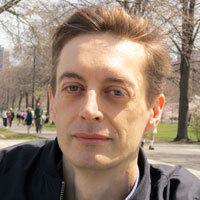
Sergio Parussa
Professor of Italian Studies
Teaches Italian language and literature, literary theory, and writing; works as a translator.
The main focus of my research and publications is the relationship between ethics and aesthetics in 20th-century Italian literature. In particular, I have studied how authors who write from a culturally marginal perspective challenge the highly coded Italian literary tradition by opening up a discussion on the balance between ethical issues and writing in literary texts. Currently I am investigating the relationship between Judaism and writing in contemporary Italian literature. I am the author of Writing as Freedom, Writing as Testimony: Four Italian Writers and Judaism (Syracuse University Press, 2008) and Eros Onnipotente: erotismo, letteratura e impegno nell'opera di Pier Paolo Pasolini e Jean Genet (Tirrenia Stampatori, 2003). My work also includes the translations of L'orso maggiore by Ginevra Bompiani, as The Great Bear (Italica Press, November 2000), and Simonetta Perkins by L.P. Hartley (Nottetempo, 2008).
This approach to the study of Italian literature is central to the shaping of my classes. I have designed and taught a variety of courses on Italian literature and culture: a course on the cultural construction of Italian identity (ITAS 272); a seminar on Jewish Italian literature and on the various contributions made by Jewish writers to the Italian literary tradition (ITAS 209/309); a survey course on the role of the court in the shaping of Italian cultural life during the Renaissance (ITAS 312), an advanced seminar on Renaissance theater as the mirror of a complex and dynamic relationship between power and culture (ITAS 311), and a course on 20th-century Italian poetry (ITAS 320) dedicated to the ways in which Italian landscape found expression in the literary works of its major contemporary poets. I have also been teaching a first-year seminar on literary theory for the Wellesley Writing Program (WRIT125-22).
Education
- B.A., University of Turin
- M.A., Brown University
- Ph.D., Brown University